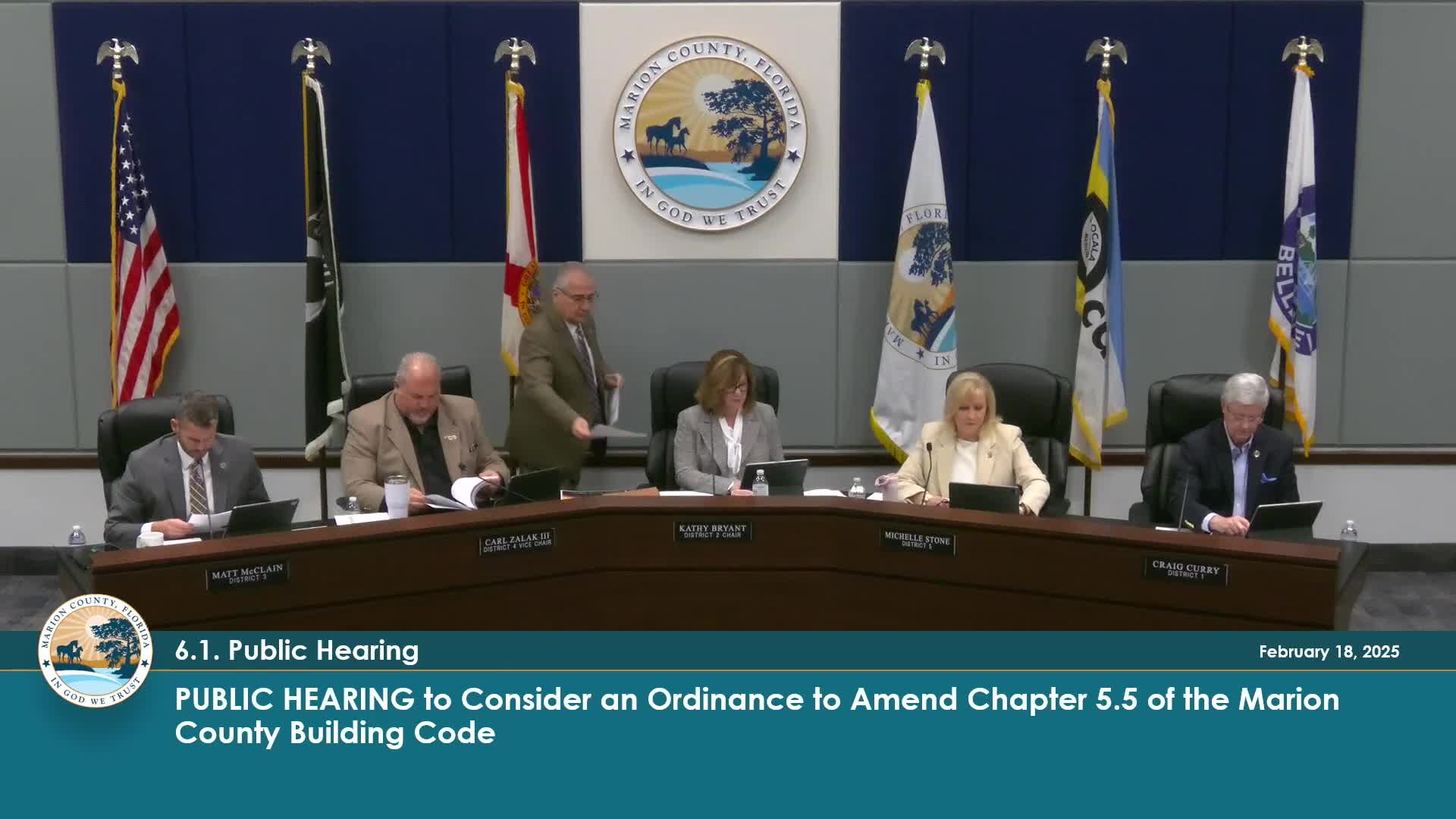Marion County accepts new impact-fee study; schedules workshops on faster fee increases
Get AI-powered insights, summaries, and transcripts
Subscribe
Summary
County commissioners accepted updated transportation and fire impact-fee analyses and voted to hold public workshops to consider declaring "extraordinary circumstances," a step that would allow faster, larger increases than state-prescribed annual steps.
Marion County commissioners on Feb. 18 accepted updated studies of transportation and fire rescue impact fees and voted unanimously to schedule public workshops and a hearing to consider declaring "extraordinary circumstances," which would let the county set impact fees higher and faster than the state’s default step-up schedule.
The action follows a presentation from Tracy Straub, the county’s assistant county administrator, and Kimberly Hatcher, growth services coordinator, who updated the board on refined transportation impact-fee calculations and an analysis of recent structural fire data used to set fire/EMS fees. Straub told commissioners the transportation study shows current single-family transportation fees at about $1,397; under the state’s statutory step-up process the board could raise fees about 12.5% a year and reach $2,095 after four years. Declaring extraordinary circumstances would let the county set a higher fee earlier, Straub said; staff used a 50% example that would allow a higher fee immediately (discussion referenced an illustrative figure of about $2,530).
Commissioners debated the trade-offs. Commissioner Zalick argued the county should “be in control of our destiny” and supported declaring extraordinary circumstances so the board could set the fee it judges appropriate. Commissioner McLean urged caution, saying an immediate, large increase could shock the local economy and that the step-up schedule exists in part to avoid one-time shocks. Commissioner Stone and others pressed that existing fees are low relative to past levels (noting a 2009 transportation fee of $6,107) and that growth-driven infrastructure needs outpace current collections.
After discussion Commissioner Zalick moved, and Commissioner Stone seconded, a motion to accept the transportation study and schedule the two statutorily required public workshops and a subsequent public hearing to consider adopting new transportation impact fees under an extraordinary-circumstances finding. The motion passed unanimously.
On fire fees, staff and Chief James Banta updated commissioners on an updated fire/EMS impact-fee schedule and an analysis of structural-fire responses. The board directed staff to continue work with the City of Ocala on a countywide EMS agreement and to schedule a separate public hearing (anticipated in late April) after the county’s March joint meeting with the city. Straub reminded commissioners that any newly adopted impact fees would become effective no sooner than 90 days after a hearing.
The workshops required for extraordinary circumstances will include presentation of the complete, updated study and public comment; commissioners said they expect additional public workshops to discuss implementation details such as credits, exemptions (including potential affordable-housing offsets), and how any new revenues would interact with other funding sources such as the county sales tax.
The board did not set a final fee in the meeting; it only accepted the study and authorized the public-review process that could result in a higher or faster increase than the usual state step-up schedule.
